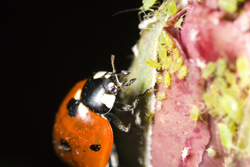Easier registration for biological control agents
BCAs are sustainable and environmentally safe as well as being able to control nematodes, insects, microbial diseases and weeds. However, the commercial use of microbial BCAs has been hampered by long, complex registration procedures that are more appropriate for synthetic pesticides. To put the whole issue in a global context, evaluation dossiers take 23 months in the United States as opposed to more than 70 months in the EU for the same products. Furthermore, to give an idea of the scope of BCAs, macrobials, exempt from such restraints, have increased their turnover from zero to over EUR 100 million in the space of only 2 decades. Aware of the limitations imposed on BCAs, the aim of the 'Registration of biological control agents' (Rebeca) project was to accelerate their registration without compromising safety. Researchers with Rebeca reviewed the current legal situation for BCAs in countries like Canada and the United States where BCAs have easier access to markets. Dissemination being a key factor in changing from use of synthetic chemicals to BCAs, Rebeca created a network of stakeholders from industry, science, regulatory authorities, policy and environment. The intention was to facilitate the spread of knowledge and experience in regulation and safety of BCAs and to identify those fields that need further research to assist regulation. Based on research, the Rebeca project drew up a list of recommendations. Because BCAs are a heterogeneous group, risk assessment needs to be specific. For example, microbials are completely different in nature to semiochemicals that operate by signalling, such as pheromones or attractants. Rebeca also helped to define BCAs that are low risk by nature and developed special registration procedures after running risk assessment tests. A website outlining current news, legislation and safety is accessible at http://www.rebeca-net.de/?p=999(opens in new window) together with useful links to associations and sources of information. Rebeca results can be used as a basis for reviewing current legislation and guidance for BCA use and development.







